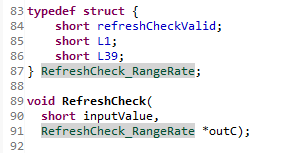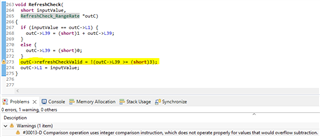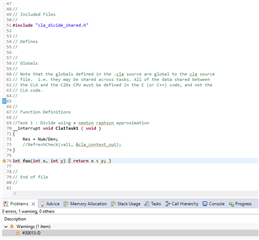Hello,
I have been experimenting comparing two float numbers for equality.
I have been taught for years that this is not a safe operation to perform because of the float accuracy.
But it seems that the compiler has no issue doing it (not even a warning) and when I check the assembly code I see this kind of instructions:

Is there any issue doing this? Could we be expecting any wrong behavior in some cases? Should it be avoided?
What best practice should you recommend?
Thank you
Best regards,
Laurent.






